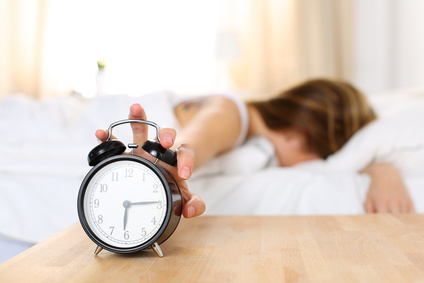
by Natalia Zurek
Getting enough sleep is essential for good health as well as for our ability to carry out our normal routine and daily tasks. Many of us may not realize we are suffering from lack of sleep until we are too exhausted to perform our daily tasks. It is all too easy to take sleep for granted as we keep late hours and an irregular bedtime routine.
The fast pace of life, with its plethora of artificial lights and 24-hours a day lifestyle provides many excuses for staying up late. However, lack of sleep may cause us to feel bad tempered, inhibit concentration and mental function as well as impair the function of our immune system causing increased vulnerability to infection and diseases.
Lack of sleep will also increase stress levels, causing detrimental effects on our personal and working life.
What happens while we sleep?
During the sleeping period the human body passes through several different levels of sleep. Each level has its own purpose and helps the recharging and rejuvenating of the body. During sleep, the body repairs and creates damaged or depleted cells.
The release of the hormone melatonin during sleep is an essential part of the work of the immune system. Melatonin is also important in the regulation of the body’s natural 24-hour cycle.
Total darkness for good quality sleep
In order to achieve the right kind of good quality sleep it is essential to sleep in complete darkness. This will increase the production of melatonin causing the drowsiness that induces natural sleep.
Interruption to sleep from TV lights or even the light from an alarm clock can disrupt melatonin production and the body’s natural sleep pattern.
Quality not quantity
Five hours of uninterrupted, good quality sleep is far more beneficial than eight hours of sleep that is interrupted – for whatever reason. A good night’s sleep has a direct impact on how we function during the day.
Several factors such as lack of routine, consuming stimulants such as caffeine, nicotine and some medications may affect quality of sleep. Stress can also affect quality of sleep.
Develop good bedtime and sleeping habits
A good routine at bedtime is as important as any other routine. A good night’s sleep will ensure that you feel alert, energetic and happy during the day.
Everyone requires different amounts of sleep – it is important, when deciding on a bedtime, to discover how many hours of sleep you need.
Keep a sleep diary for a few weeks and take note of hours slept and how rested you felt on waking.
Other steps you can take include the following –
● Eat at least three hours before the designated bedtime. Avoid fried and heavy meals. If you feel hungry near to bedtime choose a snack that is high in protein and complex carbohydrates – such as oatmeal, turkey, peanut butter, soybean, and sesame seeds.
● Avoid drinking too much fluid before bed so that you don’t need to wake up for the bathroom.
● Exercise for at least thirty minutes, three times a week – at least. Exercise will not only make you physically tired it will also reduce levels of stress. Do not exercise just prior to bed as it often has a stimulating effect
Create a haven for sleep
There are a number of ways you can create a perfect environment for sleep – these include
● Use your bedroom for nothing other than sleep, relaxation and intimacy
● Choose soothing, relaxing colors such as blue or green for the decor
● Wear loose clothing, make sure your mattress and pillows are in good condition
● Create total darkness by using an eye mask or black out curtains
● The ideal time for sleep is between 10 p.m. and 6 a.m. – this is when melatonin secretion is at its highest
● Take a hot bath just prior to bed, using essential oils such as lavender or chamomile will increase relaxation and relieve stress
● Limit exposure to EMF – remove TVs, computers, mobile phones, iPods etc from the bedroom and turn any clocks with an LED display away from the bed
● Avoid switching lights on during the night – use nightlights for bathroom visits
Medication
There are many remedies for sleeping disorders most of which are readily available as over the counter medications or herbal and alternative remedies. Before taking any type of medication, it is important to discuss your sleeping disorder with your own medical practitioner.
(Natalia Z. is a one of the specialists on Webctor.com – a new health center which is responsible for bringing free and accurate medical information to the Internet. You can follow the portal on Twitter @webctor_com.)





